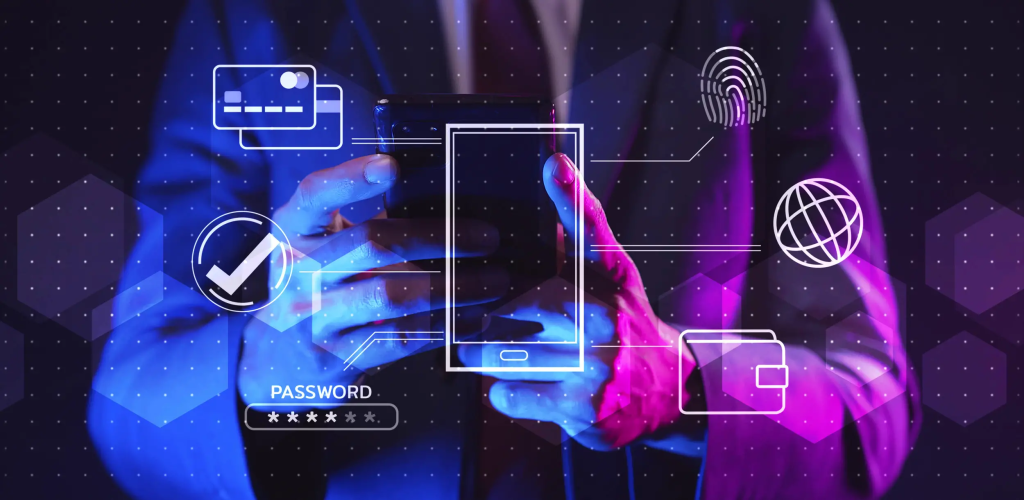Navigating the World Wide Web Securely: A Guide to Unlock Features

Welcome to the wild world of the Internet, where endless possibilities and limitless information await at just a click of a button. But as much as this vast virtual realm offers convenience and excitement, it also comes with its fair share of risks. From cyber threats lurking around every corner to privacy concerns that could leave you vulnerable, navigating the World Wide Web can be a daunting task without proper security measures in place.
But fear not! In this comprehensive guide, we’ll take you on a journey through the intricacies of online safety and teach you how to unlock all the amazing features that the web has to offer while keeping your personal information safeguarded. So fasten your seatbelts and get ready for an adventure filled with tips, tricks, and expert advice on how to enjoy the Internet securely – because with Norton by your side, nothing can hold you back from exploring with peace of mind!
The Importance of Internet Security
In today’s digital age, where technology has become an integral part of our everyday lives, the importance of internet security cannot be overstated. The Internet has revolutionized how we communicate, shop, and access information. However, it also poses numerous risks that can have devastating consequences if not taken seriously.
One of the primary reasons why internet security is vital is to protect our personal and sensitive data from falling into the wrong hands. Whether it’s financial information, login credentials, or even private conversations, cybercriminals are constantly on the prowl for vulnerabilities they can exploit.
Moreover, internet security ensures that our devices remain safe from malware and viruses that can wreak havoc on our systems. With hackers becoming increasingly sophisticated in their techniques, having robust antivirus software like Norton becomes critical in defending against potential threats.
Another aspect to consider is the protection of children while online. The internet is a vast playground with both educational resources and potentially harmful content readily available at their fingertips. Implementing parental controls and monitoring tools helps ensure a safer online experience for young users.
Lastly but certainly not least importantly – privacy! Preserving our privacy when browsing the web should always be a priority. From targeted advertisements to invasive tracking practices by certain websites or third-party entities- safeguarding your personal information goes hand-in-hand with maintaining good internet security hygiene.
By understanding the importance of internet security and taking proactive measures such as using reliable antivirus software like Norton – you can confidently explore all that cyberspace has to offer without compromising your safety or peace of mind.

Common Online Threats and How to Protect Against Them
In today’s digital age, online threats are becoming increasingly common and sophisticated. Cybercriminals are constantly finding new ways to exploit vulnerabilities and steal sensitive information from unsuspecting internet users. It is crucial to stay vigilant and take steps to protect yourself against these threats.
One of the most prevalent online threats is phishing. Phishing scams involve tricking individuals into divulging their personal information or login credentials by posing as a legitimate organization or website. To protect yourself against phishing attacks, it is essential to be cautious when clicking on links in emails or messages, especially if they ask for personal information.
Another common threat is malware. Malicious software can infect your devices through infected websites, email attachments, or downloads. To safeguard against malware, ensure that you have robust antivirus software installed and regularly update it to detect and eliminate any potential threats.
Ransomware attacks have also been on the rise in recent years. These attacks involve encrypting a victim’s files until a ransom is paid to the cybercriminals who initiated them. To prevent falling victim to ransomware attacks, make sure you regularly backup important files so that even if they become encrypted, you can restore them without paying the ransom.
Additionally, it is crucial always to use strong passwords for all your online accounts and enable two-factor authentication whenever possible. This adds an extra layer of security by requiring a second form of verification before granting access.
Being aware of social engineering tactics can help protect against online threats. Social engineering involves manipulating individuals into revealing confidential information through techniques such as impersonation or deception. Be skeptical of unsolicited requests for personal information and avoid sharing too much personal data on public platforms.
By staying informed about common online threats and implementing proactive measures discussed here like using comprehensive security solutions such as Norton along with practicing safe browsing habits will significantly reduce your risk exposure while navigating the World Wide Web securely!
Secure Browsing: Tips and Tricks
When it comes to browsing the internet, security should be your top priority. With cyber threats on the rise, it’s important to take proactive steps to protect yourself online. Here are some tips and tricks for secure browsing.
1. Keep Your Software Up to Date
One of the simplest yet most effective ways to enhance your online security is by keeping your software up to date. This includes not only your web browser but also your operating system and antivirus software. Updates often contain critical security patches that help prevent hackers from exploiting vulnerabilities in outdated software.
2. Use a Virtual Private Network (VPN)
A VPN provides an added layer of protection by encrypting your internet connection, making it difficult for anyone else to intercept or access your data while you’re browsing. It masks your IP address, ensuring anonymity and helping you bypass geo-restrictions.
3. Beware of Phishing Attempts
Phishing attacks have become increasingly sophisticated, so it’s crucial to remain vigilant when clicking on links or providing personal information online. Be wary of suspicious emails or messages asking for sensitive details such as passwords or financial information.
4. Enable Two-Factor Authentication (2FA)
Two-factor authentication adds an extra level of security by requiring users to provide two forms of identification before accessing an account or service. This typically involves entering a password along with a unique verification code sent via email, SMS, or through an authenticator app.
5. Utilize Ad-blockers and Anti-Tracking Tools
Ad-blockers not only improve user experience by reducing intrusive ads but can also help prevent malvertising – malicious advertisements that may contain malware or lead you towards phishing sites.

Unlocking Advanced Features on Popular Websites
In today’s digital age, popular websites offer a plethora of advanced features that can enhance your online experience. Whether it’s social media platforms, streaming services, or shopping sites, understanding how to unlock these features is key to maximizing their potential.
One way to unlock advanced features is by creating an account and logging in. Many websites provide additional functionalities and personalized settings for registered users. By signing up with your email address and setting a secure password, you can access exclusive content, save preferences, and enjoy a more tailored browsing experience.
Another way to unlock advanced features is by exploring the website’s settings or options menu. Often hidden within drop-down menus or sidebar navigation panels, these settings allow you to customize various aspects of your user experience. You may be able to adjust privacy controls, notifications preferences, display options, or even enable dark mode for easier nighttime viewing.
Some websites also offer premium memberships or subscription plans that grant access to exclusive features and benefits. These upgrades often come with added perks such as ad-free browsing experiences, higher video quality on streaming platforms, early access to product releases on e-commerce sites, and much more. While some subscriptions require payment, others offer free trials so you can test out the enhanced functionality before committing.
Making Online Purchases Safely
In today’s digital age, online shopping has become increasingly popular. It offers convenience and a wide range of options right at our fingertips. However, with this convenience comes the risk of falling victim to online scams or having our personal information compromised. To ensure a safe online shopping experience, here are some essential tips to keep in mind.
Always make sure you are purchasing from reputable websites or trusted sellers. Look for secure payment methods such as PayPal or encrypted connections (look for “https://” in the URL). This will help protect your financial information when making transactions.
Be cautious about sharing too much personal information during the checkout process. Only provide necessary details like your name, shipping address, and payment information. Avoid giving out unnecessary data that could potentially be misused by cybercriminals.
Another important aspect is to read reviews and ratings before making a purchase. This can give you valuable insights into the quality of products and reliability of sellers. Authentic customer feedback can help avoid scams or counterfeit products.
Furthermore, it is advisable to use strong passwords for all your accounts related to online shopping platforms and enable two-factor authentication whenever possible. This adds an extra layer of security to protect against unauthorized access.
Regularly monitor your bank statements and credit card activity for any suspicious charges or activities. Report any discrepancies immediately to your financial institution so they can investigate further.
By following these precautions while making online purchases, you can enjoy the benefits of e-commerce while minimizing potential risks associated with it.

Managing Passwords and Personal Information
In today’s digital age, managing passwords and personal information is of utmost importance. With the increasing number of online threats, it’s crucial to take steps to protect our sensitive data. Here are some tips for effectively managing passwords:
1. Create Strong and Unique Passwords: Avoid using common phrases or easily guessable combinations. Instead, use a mix of uppercase letters, lowercase letters, numbers, and special characters.
2. Use a Password Manager: It can be challenging to remember multiple complex passwords for different accounts. A password manager securely stores all your login credentials in one place.
3. Enable Two-Factor Authentication (2FA): This adds an extra layer of security by requiring you to verify your identity through another device or method before logging in.
4. Regularly Update Your Passwords: Set reminders to change your passwords every few months or after any suspicious activity.
When it comes to safeguarding personal information:
1. Be Mindful of Phishing Attempts: Always double-check URLs before entering personal information on websites or responding to emails asking for sensitive data.
2. Protect Social Media Profiles: Adjust privacy settings and avoid sharing too much personal information publicly.
3. Be Wary of Public Wi-Fi Networks: These networks can be vulnerable to hackers who may try to intercept your data when connected.
By implementing these best practices for managing passwords and protecting personal information online, you can significantly reduce the risk of falling victim to cyberattacks or having your valuable data compromised!
Our Recommendation: Norton -Lifelock – Enjoying the Internet with Peace of Mind

When it comes to navigating the World Wide Web securely, having reliable online security software is crucial. With the ever-increasing number of online threats and hackers constantly finding new ways to exploit vulnerabilities, protecting your personal information and sensitive data should be a top priority.
After discussing the importance of internet security, common online threats, secure browsing tips and tricks, unlocking advanced features on popular websites, making safe online purchases, and managing passwords and personal information throughout this guide, we have reached our final recommendation: Norton – Lifelock.
Norton is a renowned name in the field of cybersecurity. Their comprehensive suite of products offers robust protection against malware, ransomware, phishing attacks, identity thefts and more. With powerful features like real-time threat detection and proactive web protection technologies, Norton ensures that you can browse the internet worry-free.
Lifelock takes it a step further by providing identity theft protection services. They monitor your personal information across various platforms to detect any suspicious activities or signs of identity theft. With their 24/7 customer support team ready to assist you in case an incident occurs, you can enjoy peace of mind knowing that your digital life is protected.
By combining both Norton’s powerful antivirus software with Lifelock’s vigilant monitoring services for identity theft protection – you get an all-encompassing solution for staying safe in today’s digital world.
So whether you’re browsing social media sites or making important financial transactions online; whether you’re accessing advanced features on popular websites or managing multiple passwords securely – choosing Norton – Lifelock will provide you with the confidence to explore everything that the internet has to offer without compromising your security.
In conclusion (oops!), as technology continues to advance rapidly so do cyber threats. It’s essential always to stay vigilant when venturing into cyberspace. By following best practices for internet security and utilizing reliable tools like Norton – Lifelock, you can navigate the World Wide Web.



